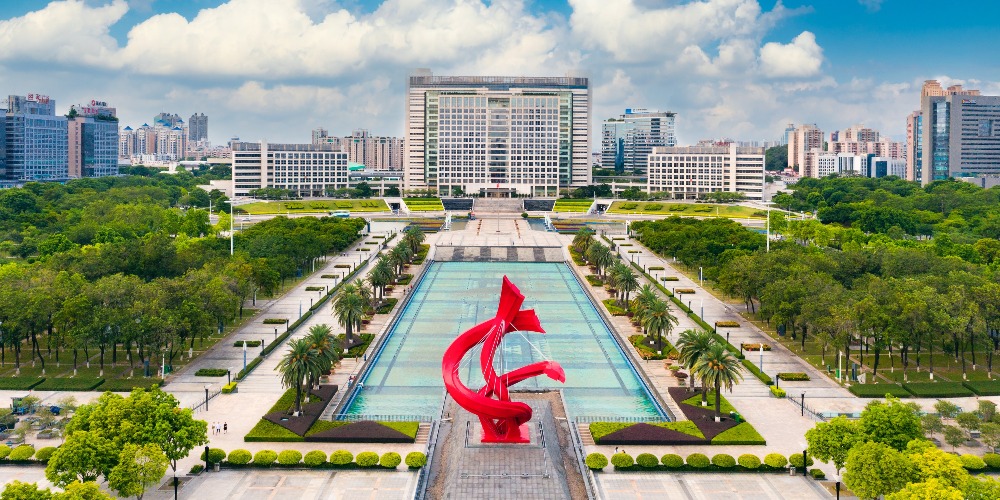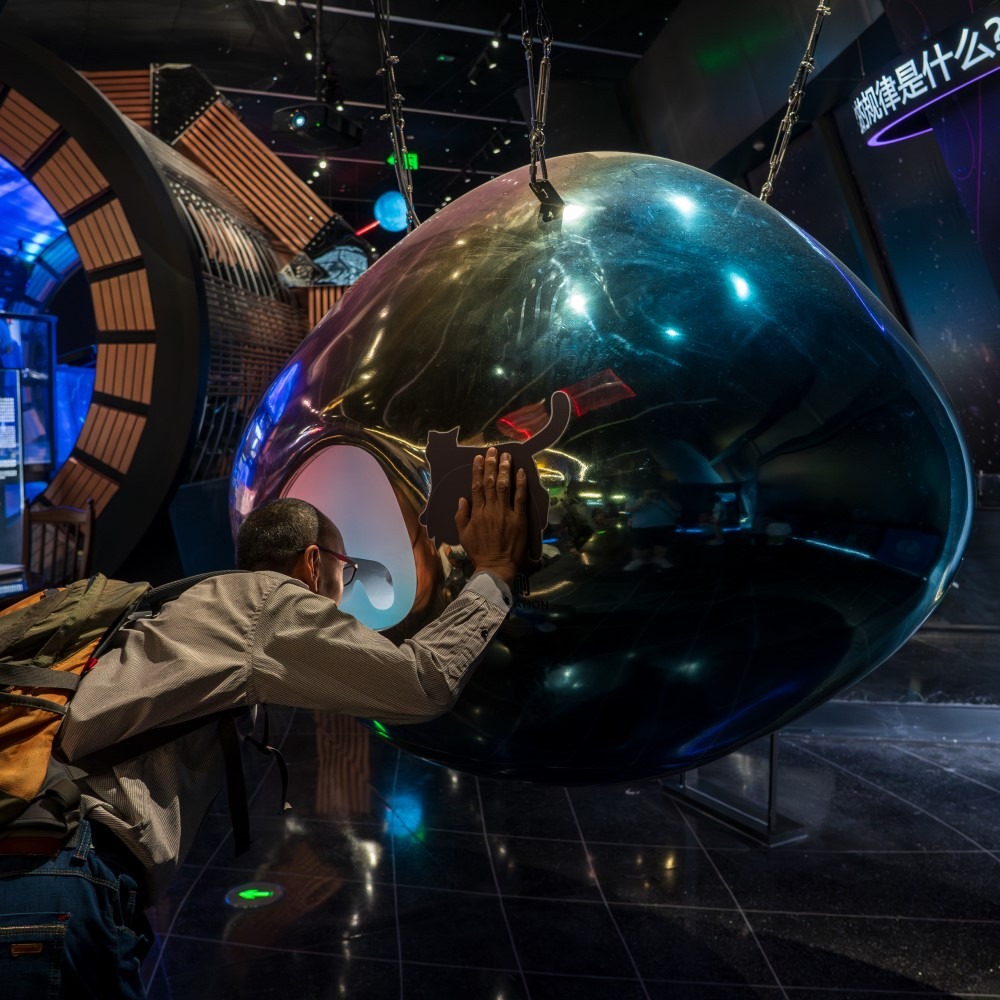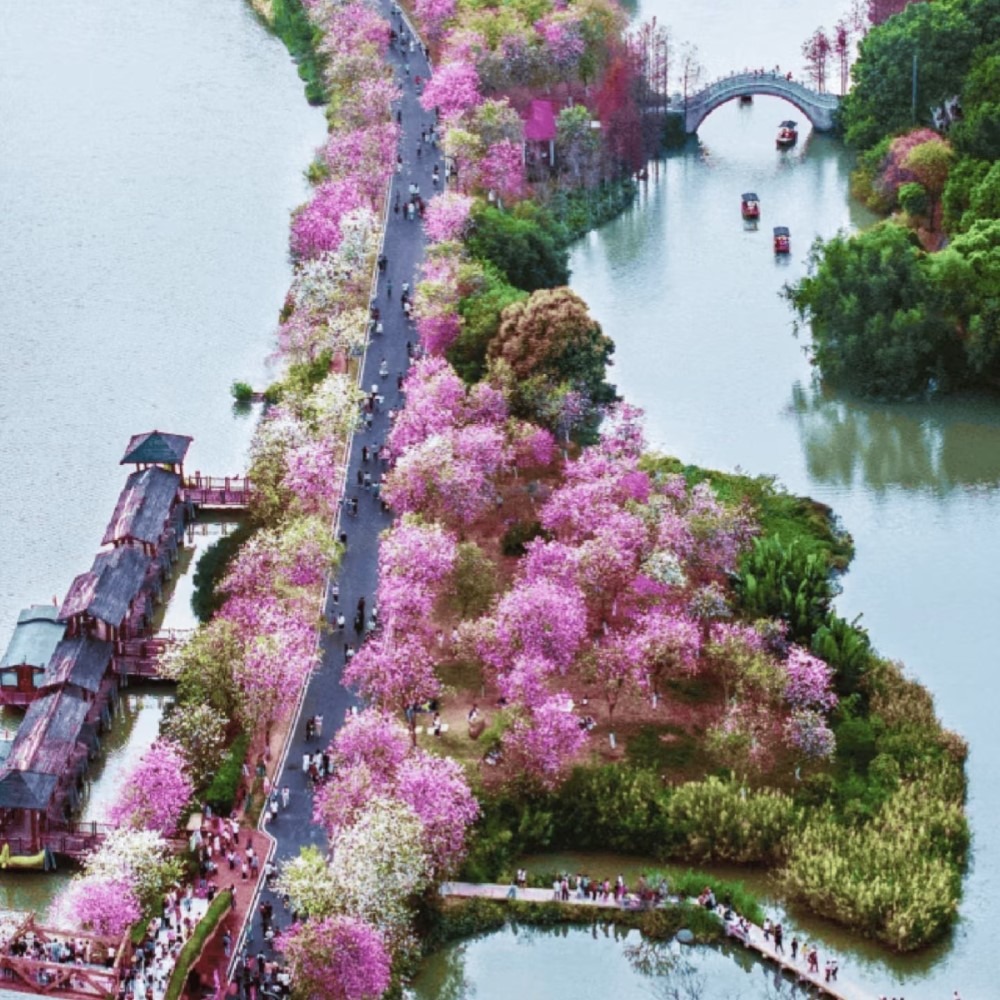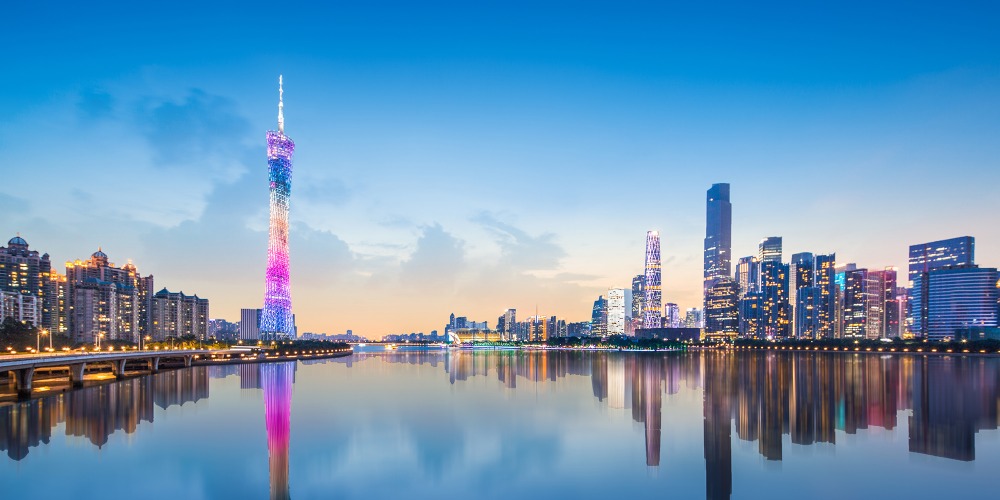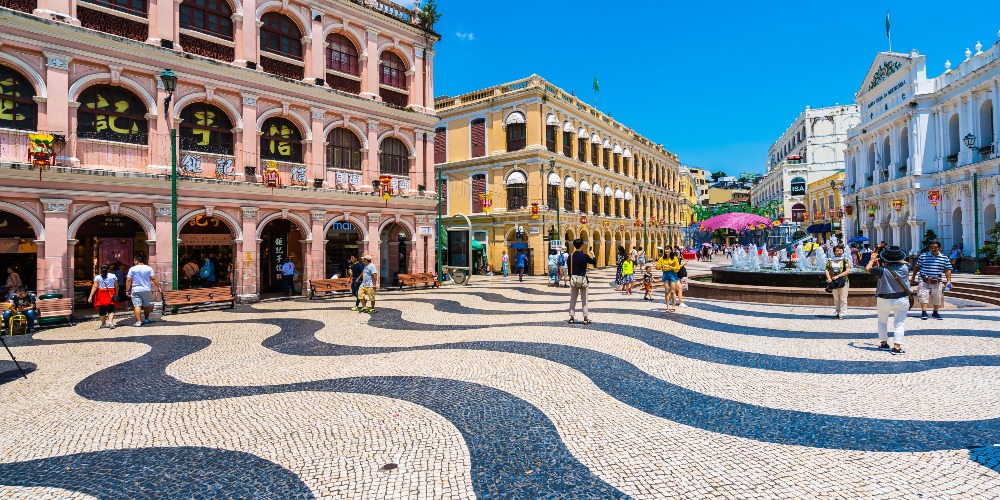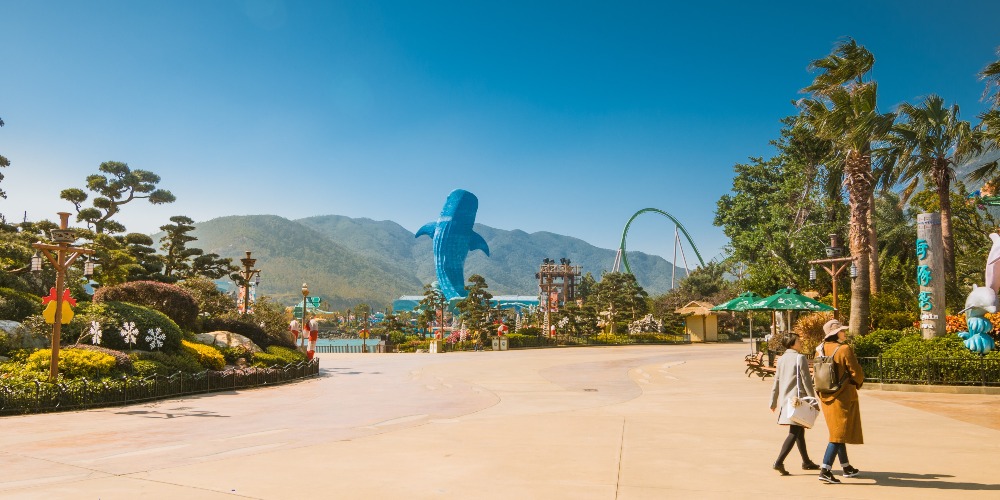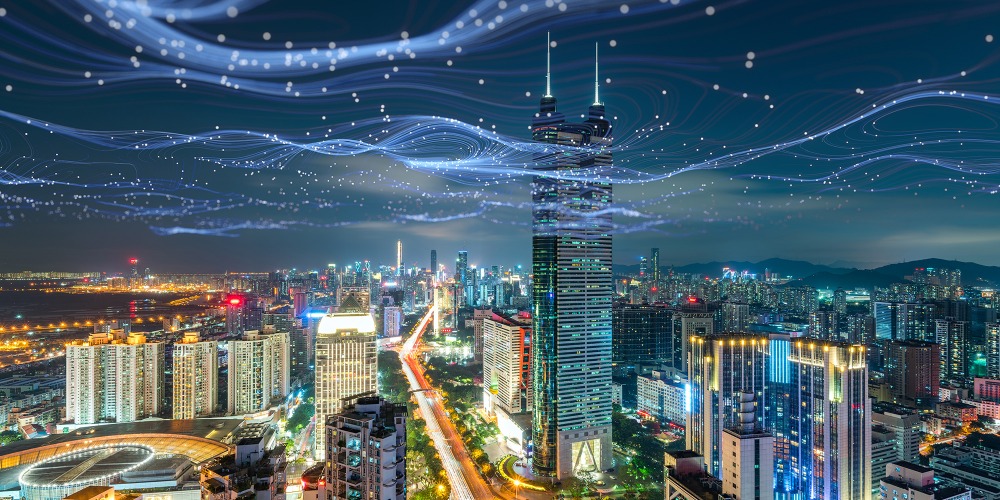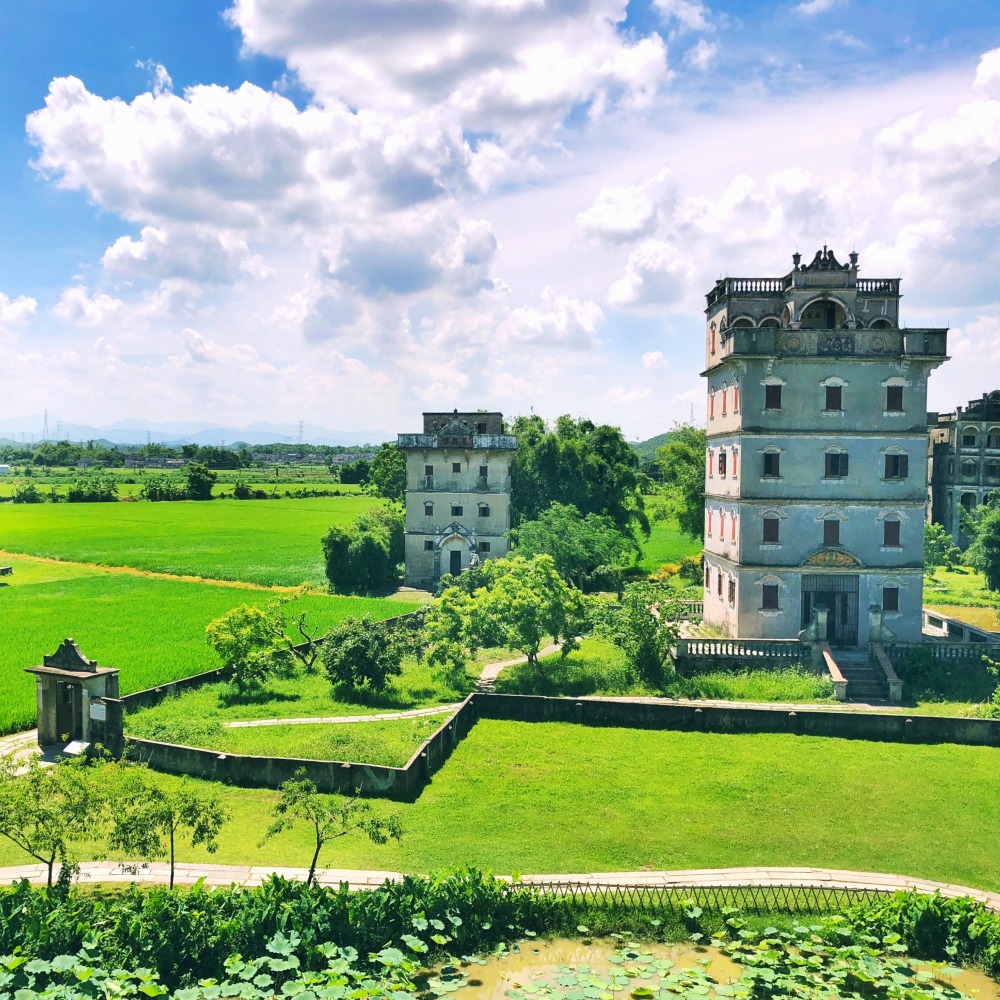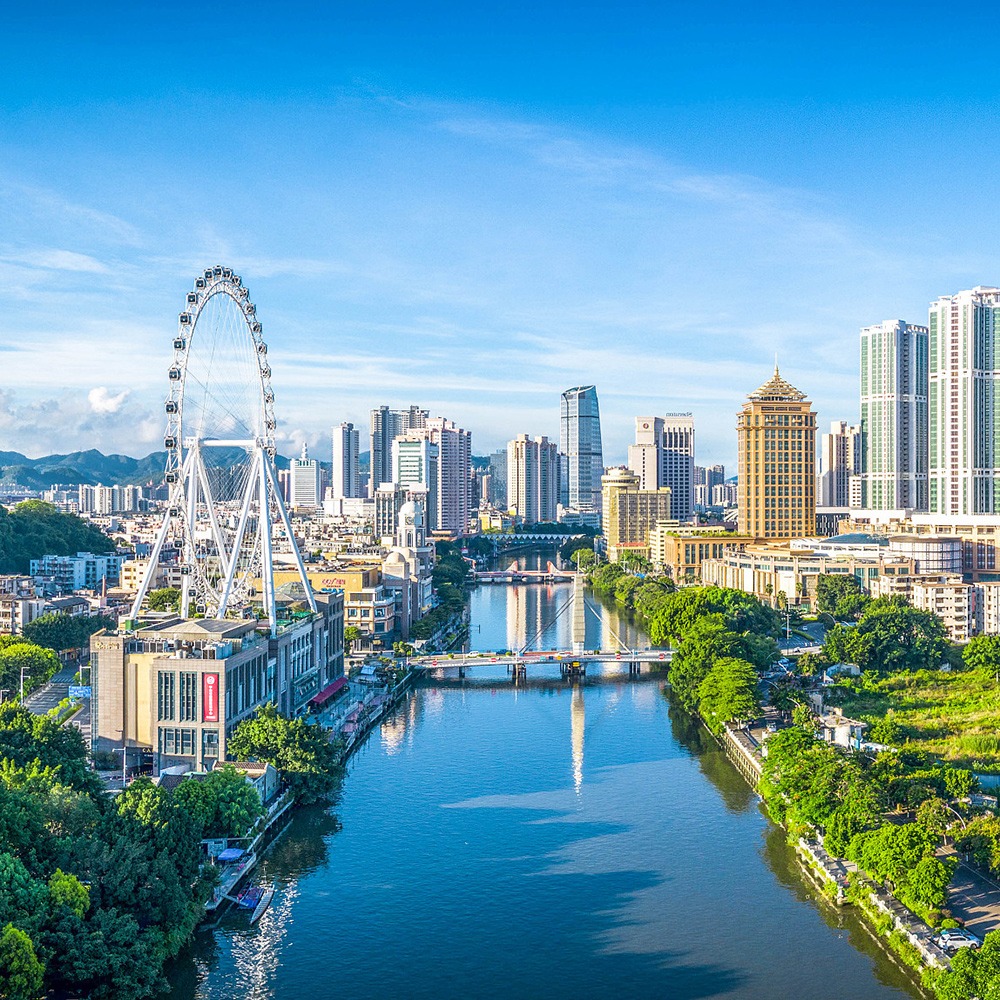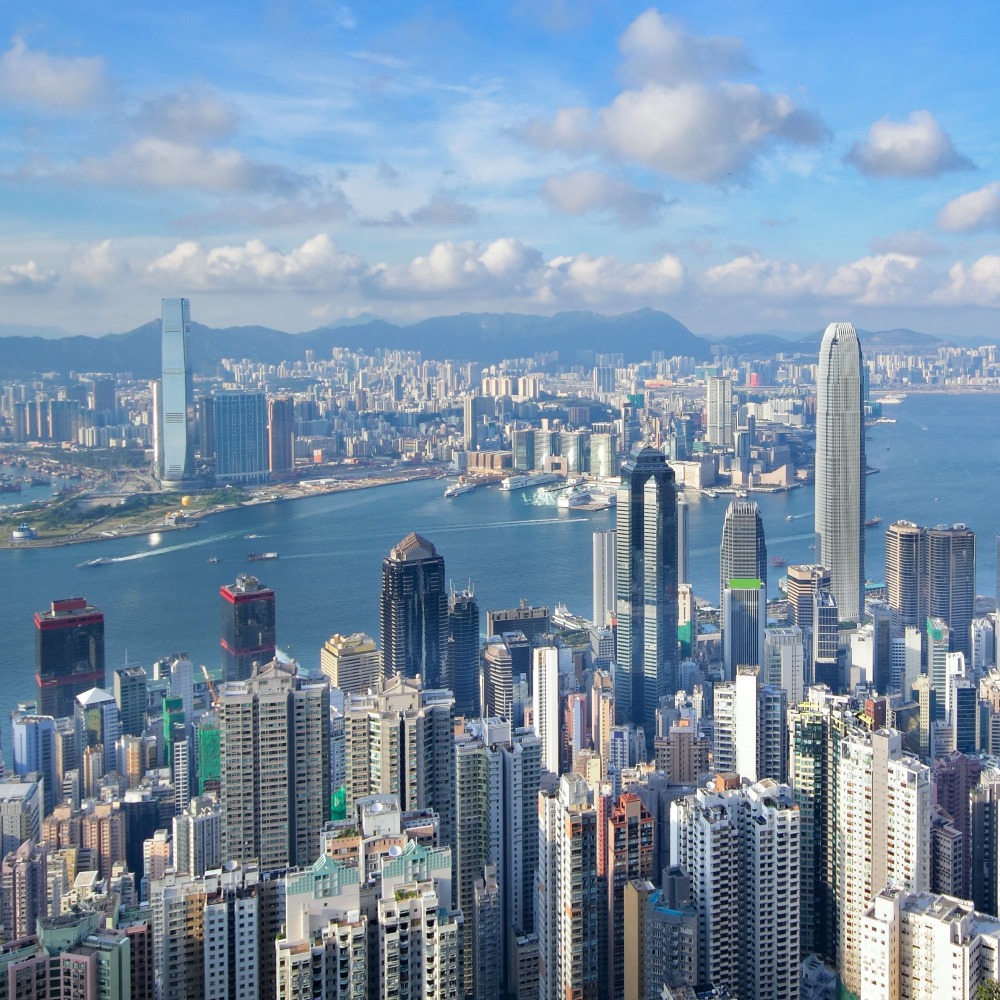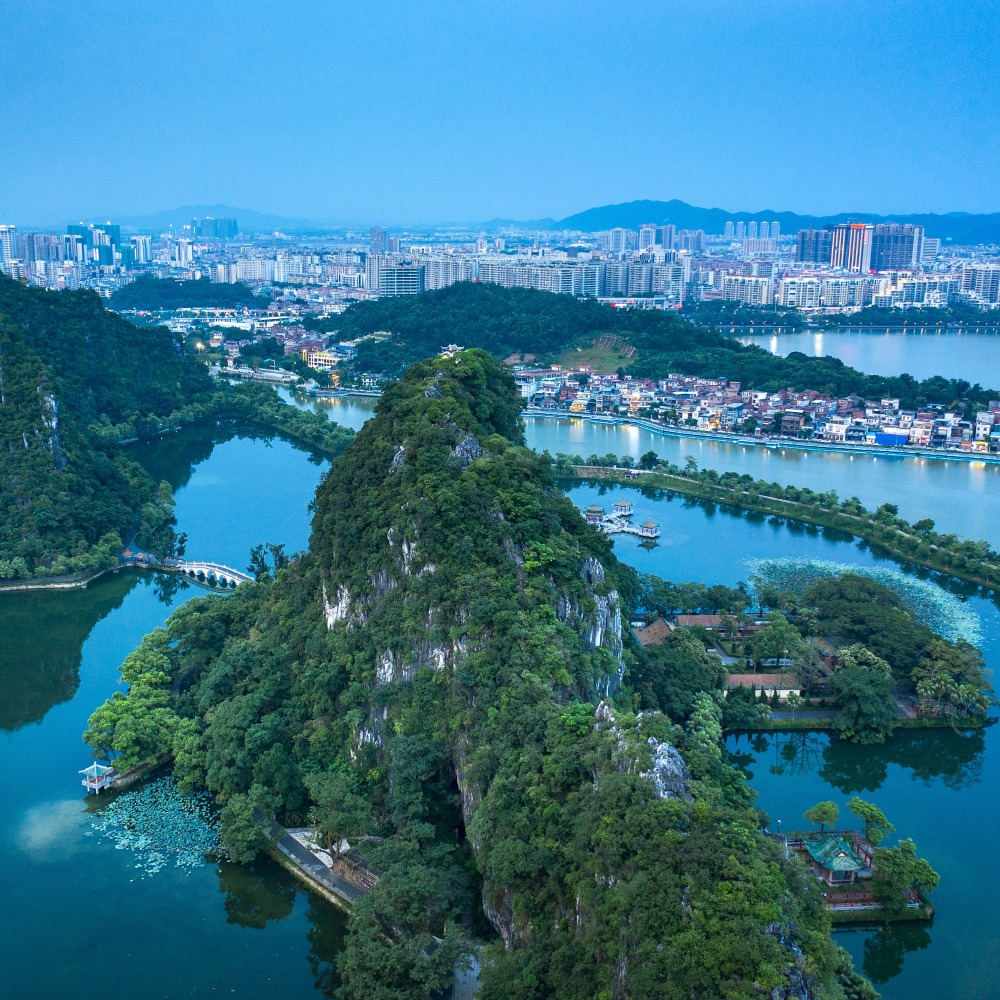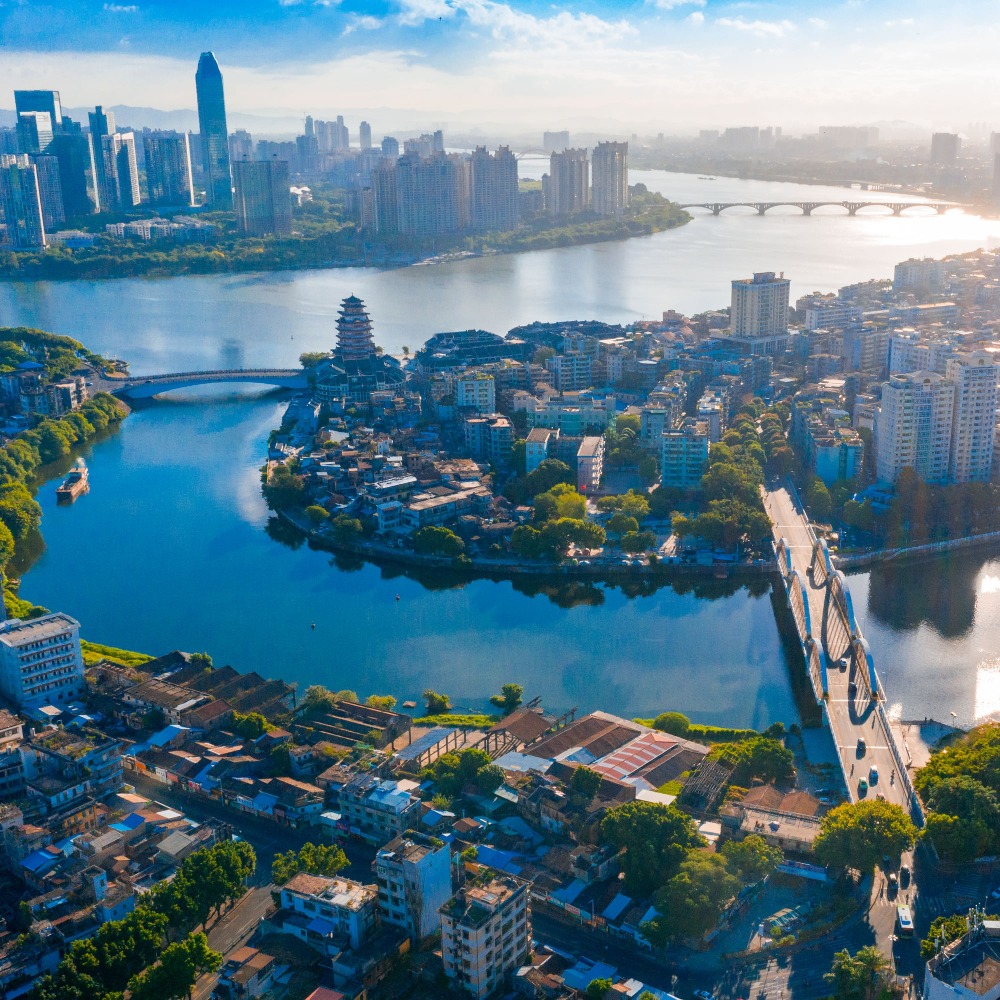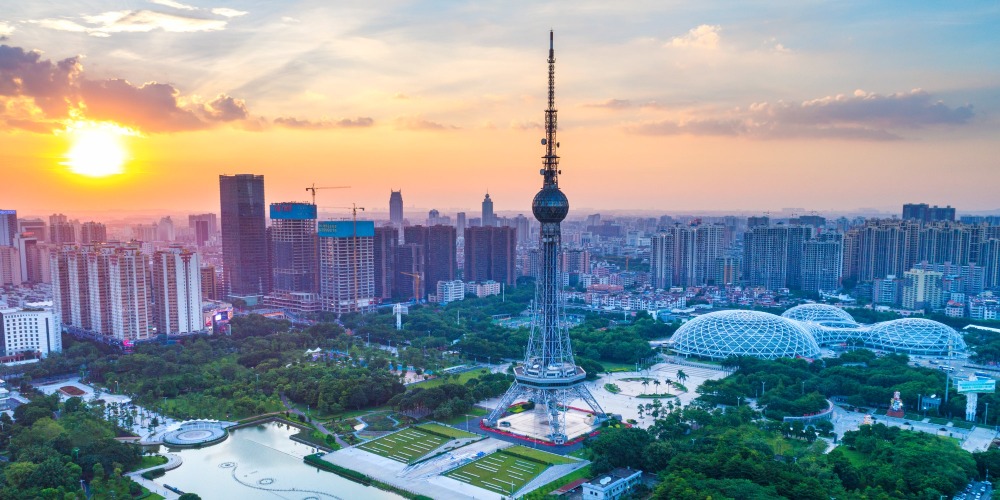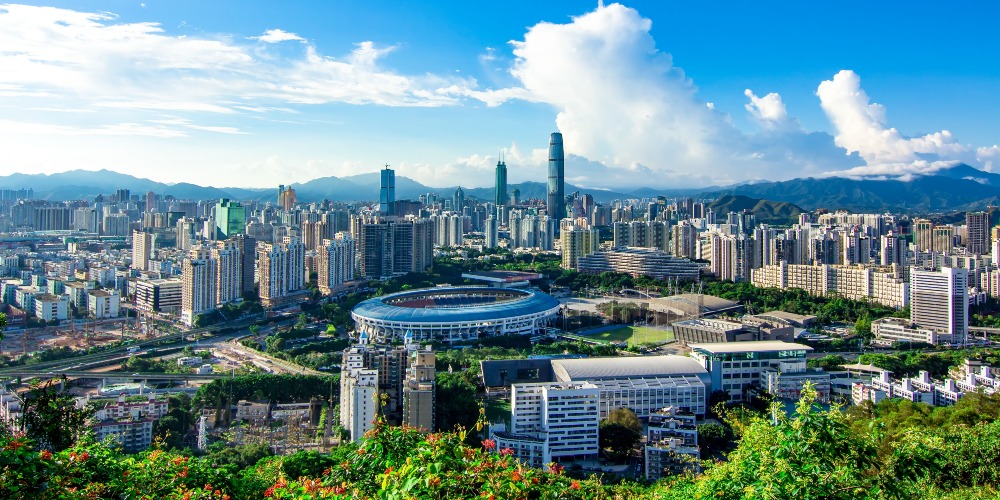Published : 2025-03-19
Was Dongguan's name derived from Shandong Province, a thousand miles away? How did the "World's Factory" transform to become one of the fastest-growing Chinese cities in recent years?
Here are the five numbers that will tell you the story of Dongguan.
127 BC|The name "Dongguan" originated from Shandong Province?
Dongguan is located in the central-southern part of Guangdong Province, on the eastern shore of the Pearl River estuary, surrounded by Guangzhou, Shenzhen, Hong Kong, and Huizhou. Its advantageous location makes it an important city in the Greater Bay Area (GBA).
However, the earliest place called "Dongguan" was not here.
Historically, an area around Yishui and Ju County in Shandong Province, about a thousand miles from today's Dongguan, was named "Dongguan."
As early as 127 BC, Emperor Wu of Han conferred the title of "Marquis of Dongguan" upon Liu Ji, the younger brother of the Prince of Chengyang, and "Dongguan County" was established.
This marked the first administrative unit in Chinese history to be named "Dongguan." However, this "Dongguan" was abolished after several dynasties.
So, what about Dongguan in Guangdong Province?
According to the local county annals, Dongguan was established as a county in 331 AD, which was the sixth year of the Xianhe era in the Eastern Jin Dynasty.
It was initially named Bao'an County and was later renamed Dongguan County in the second year of Zhide (757 AD) during the Tang Dynasty, becoming today's Dongguan.
Scholars researching history believe the name of Dongguan in Guangdong was borrowed from Dongguan in Shandong. Others say it was because the southern Dongguan was abundant in "Guan Grass" (莞草).
The so-called "Guan Grass" is what we commonly know as saltwater cordgrass (鹹水草).
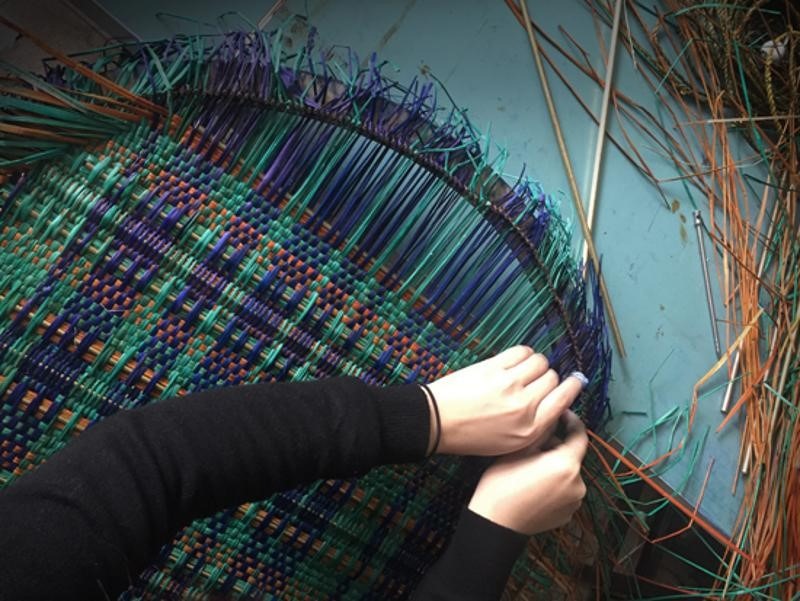
Over 10 mln people|Dongguan is listed among "megacities" in China
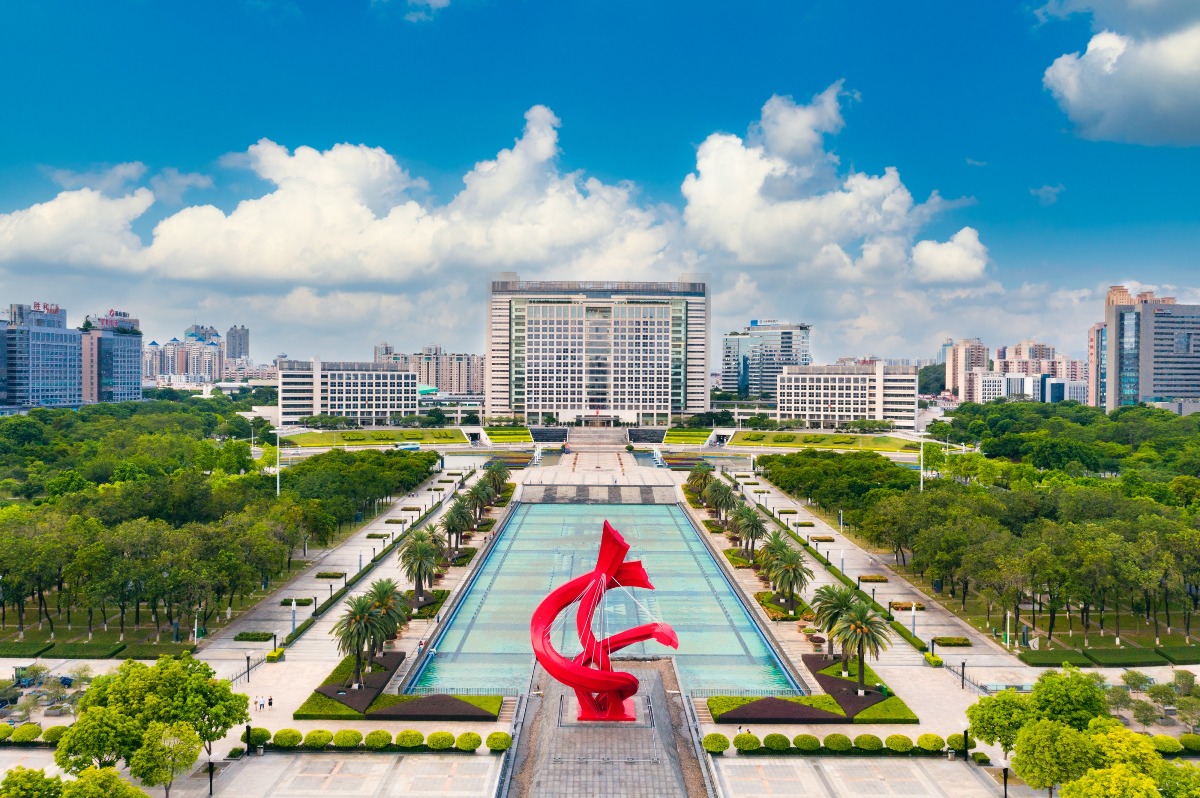
Dongguan City comprises 4 subdistricts and 28 towns, with a total area of approximately 2,500 sq km, ranking 6th in the Greater Bay Area.
Although the area is not large, its population is growing rapidly.
According to data from the Dongguan Municipal People's Government, as of the 2023, the permanent population of Dongguan City is 10.48 million, of which 9.73 million are urban residents, resulting in a population urbanisation ratio of 92.83%.
In China, if a city's urban population exceeds 5 million, then it is called a "megacity." Dongguan is the 3rd city in the Greater Bay Area to become a megacity, while Guangzhou and Shenzhen have become "super cities."
Read more: Reform and Opening-up | How did the "Dongguan Model" achieve trillion dollar GDP?
Nationwide 24th|Dongguan's GDP surpasses 1 trillion RMB
With a large population, Dongguan provides a huge labour force, creating the "World's Factory." Dongguan's GDP has rapidly increased over the past decades. Dongguan's GDP reached 1.12 trillion RMB in 2022, making it the 4th trillion-dollar city in the Greater Bay Area and ranking 24th across the country.
The GDP of its all 32 towns and subdistricts surpassed 10 billion RMB. Among them, the GDP of Chang'an Town (長安鎮) approached 90 billion, making it a rising star in Dongguan's plan to build a "100-billion town".
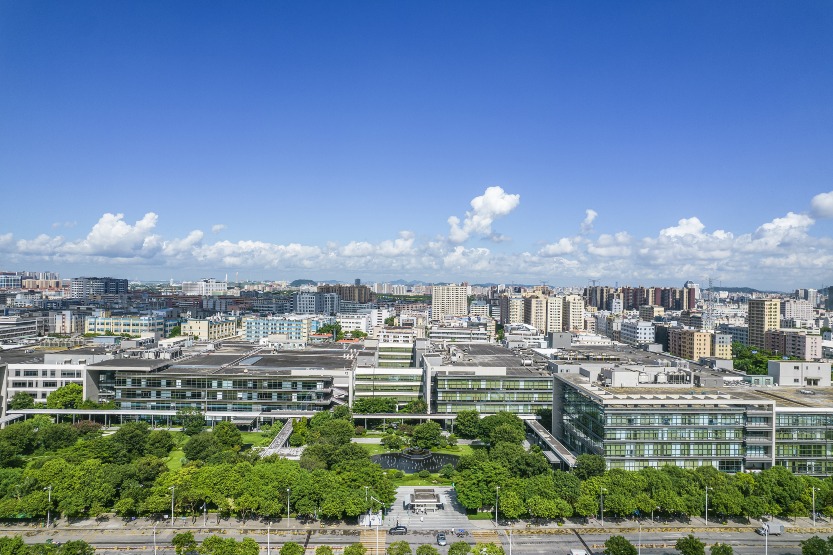
Chang'an Town in Dongguan is an important economic hub carefully built by the Dongguan Municipal Government. Electronic information and hardware moulds are the two major industries in Chang'an Town.
Currently, the overall economy of Chang'an Town accounts for 80% of Dongguan's total GDP. In the future, it is expected to become another 100-billion town in the Greater Bay Area.
195 phones per minute|Fast production of mobile phones
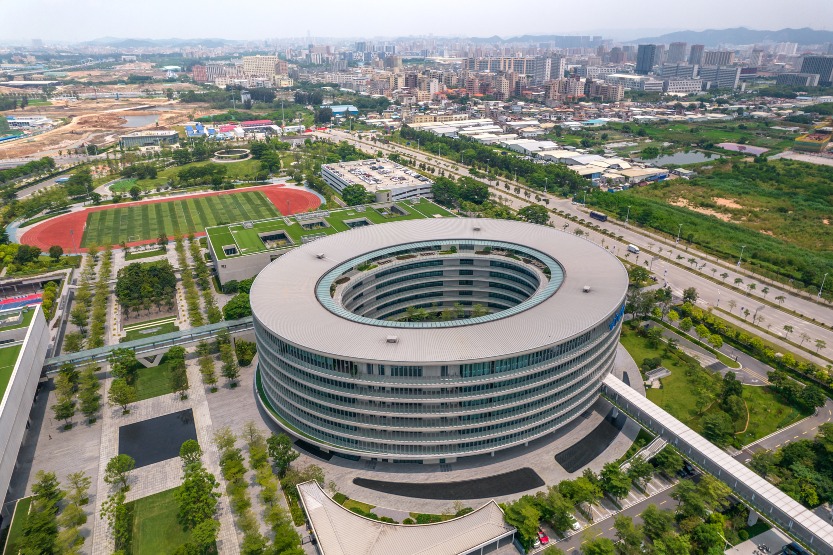
Chang'an Town in Dongguan is a major global hub for the electronics industry, known as "Dongguan's No. 1 town" and "the No. 1 smartphone town."
Chang'an Town nurtures two major Chinese smartphone leaders, OPPO and vivo, with over 1,000 upstream and downstream supporting companies for smartphones, and smartphone shipments accounting for one-eighth of the global total.
According to official figures, Chang'an Town currently produces an average of 195 smartphones per minute, making it the world's largest production base for electronic information and smartphones.
Global mobile phone giants Huawei and Apple also have major production lines in Dongguan.
Read more: A look inside Huawei's headquarters | A European-style high-tech town in Dongguan
26,000 basketball courts|Dongguan known as the "basketball capital" in China
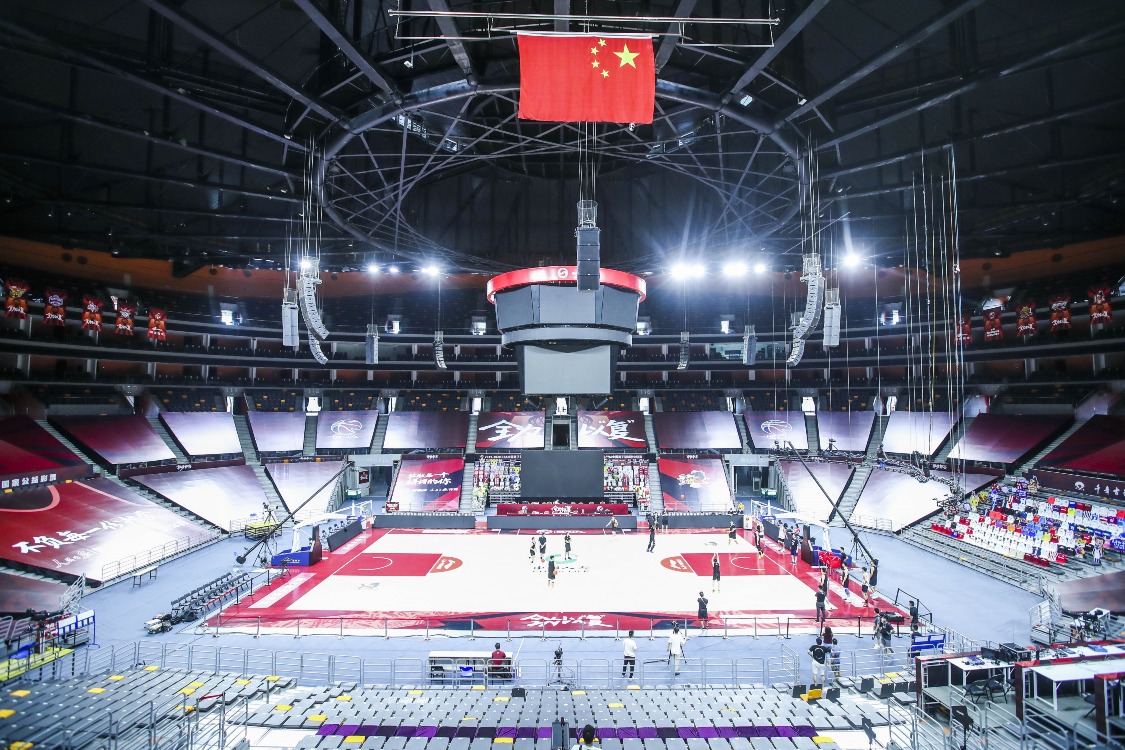
In addition to its strong economy, Dongguan is also a nationally known "basketball capital".
According to an article by the Guangdong Provincial Sports Bureau, Dongguan has more than 26,000 basketball courts, with 2,100 courts meeting competition standards. Each town, district, subdistrict, village, and community committee has one or more standard basketball courts, most of which are open to the public for free.
Dongguan has basketball venues built to NBA standards, and has long hosted the games of Chinese Basketball Association (CBA).
Since 1995, the Dongguan Sports Centre has been a home court for the CBA; the Dongguan Basketball Centre in Songshan Lake was also built to NBA standards, known as the "No. 1 CBA arena," capable of hosting all top international and domestic basketball games and NBA games.
The star basketball team is the "Guangdong Southern Tigers". As of 2021, the Guangdong Southern Tigers has won the CBA championship 11 times, making it the CBA team with the most championship titles.
